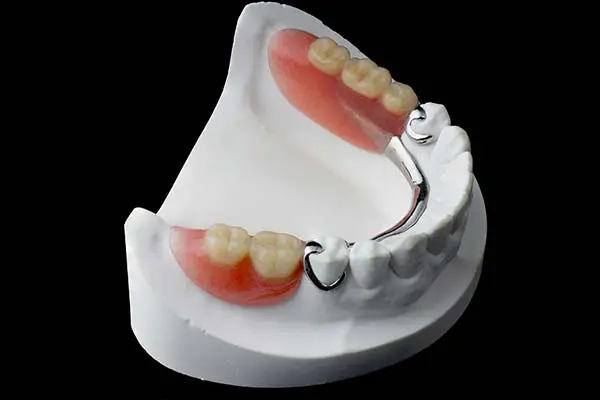Partial Teeth Dentures: A Comprehensive Guide

Partial teeth dentures are a popular and effective solution for replacing one or more missing teeth. Unlike complete dentures, which replace all the teeth in a jaw, partial dentures are designed to fill in gaps left by missing teeth while retaining the natural teeth. This guide will provide an overview of partial dentures, including their benefits, types, care, and maintenance.
1. What Are Partial Dentures?
Partial dentures are removable dental appliances used to replace one or more missing teeth. They consist of a framework that supports artificial teeth and is designed to blend with the remaining natural teeth. Partial dentures can be made from various materials, including acrylic, metal, and a combination of both.
Components of Partial Dentures
- Artificial Teeth: Made of acrylic or porcelain, these replace the missing teeth.
- Framework: The metal or acrylic base that supports the artificial teeth and fits around the remaining natural teeth.
- Clasp or Attachments: These secure the denture in place by gripping onto the natural teeth or dental implants.
2. Benefits of Partial Dentures
Partial dentures offer several advantages for individuals with missing teeth:
- Improved Functionality: They restore the ability to chew and speak effectively.
- Enhanced Aesthetics: Partial dentures fill gaps and improve the appearance of your smile.
- Preservation of Remaining Teeth: They help maintain the alignment and health of the remaining natural teeth.
- Cost-Effective: Compared to other options like dental implants, partial dentures are often more affordable.
3. Types of Partial Dentures
Partial dentures come in several types, each suited to different needs and preferences.
1. Acrylic Partial Dentures
- Description: Made entirely of acrylic, these dentures are often used as temporary solutions while waiting for permanent dentures or implants.
- Advantages: Generally less expensive and easier to adjust.
- Disadvantages: Can be less durable and may require more frequent adjustments.
2. Metal Partial Dentures
- Description: Made from a combination of metal and acrylic, these dentures are more durable and provide a more secure fit.
- Advantages: Stronger and more comfortable, with a framework that offers better support and stability.
- Disadvantages: Higher cost compared to acrylic dentures and may be less aesthetic due to visible metal clasps.
3. Flexible Partial Dentures
- Description: Made from a flexible, resin-based material that can bend and conform to the mouth.
- Advantages: Lightweight, comfortable, and more natural-looking due to the flexible material.
- Disadvantages: Can be more expensive and may not be suitable for all patients.
4. Getting Partial Dentures
The process of getting partial dentures involves several steps:
1. Initial Consultation
- Assessment: Your dentist will assess your oral health, including the condition of your remaining teeth and gums.
- Treatment Plan: Your dentist will discuss the best type of partial denture for your needs and create a treatment plan.
2. Impressions and Measurements
- Impressions: Your dentist will take impressions of your mouth to create a custom mold for the partial denture.
- Measurements: Accurate measurements of your mouth will be taken to ensure a proper fit.
3. Fitting and Adjustment
- Trial Fitting: A trial denture may be fitted to check for comfort and fit.
- Final Adjustments: Once the final denture is made, adjustments will be made to ensure it fits properly and comfortably.
4. Follow-Up Visits
- Regular Check-Ups: Follow-up visits are important to ensure the denture is functioning well and to make any necessary adjustments.
5. Caring for Partial Dentures
Proper care and maintenance are essential for the longevity and effectiveness of partial dentures.
Daily Cleaning
- Brush Daily: Brush your partial dentures with a soft-bristled brush and denture cleaner to remove food particles and plaque. Avoid using regular toothpaste, which can be abrasive.
- Rinse After Meals: Rinse the dentures with water after eating to remove any debris.
Soaking
- Denture Cleaner: Soak your partial dentures in a denture-cleaning solution as recommended by your dentist. This helps to remove stains and bacteria.
- Avoid Hot Water: Do not soak dentures in hot water, as it can warp the material.
Oral Hygiene
- Brush Remaining Teeth: Maintain good oral hygiene by brushing your natural teeth, gums, and tongue regularly.
- Rinse with Mouthwash: Use an antimicrobial mouthwash to help reduce bacteria and keep your mouth fresh.
6. Common Issues with Partial Dentures
While partial dentures are an effective solution, they can sometimes present challenges:
1. Discomfort or Soreness
- Adjustment: If you experience discomfort or soreness, contact your dentist for adjustments.
- Break-In Period: It may take some time for your mouth to adjust to the new dentures.
2. Difficulty Eating
- Practice: Start with soft foods and gradually introduce more solid foods as you become accustomed to wearing the dentures.
- Consult Your Dentist: If you have trouble eating, your dentist may need to adjust the fit of the dentures.
3. Loosening Over Time
- Regular Check-Ups: Regular visits to your dentist can help address any loosening or changes in fit.
- Relining: Dentures may need to be relined periodically to maintain a proper fit.
7. When to Consider Replacement
Partial dentures may need to be replaced or repaired in the following situations:
- Wear and Tear: Over time, dentures can become worn or damaged.
- Changes in Oral Health: Changes in the structure of your mouth or remaining teeth may require new dentures.
- Discomfort: If dentures no longer fit comfortably, it may be time for a replacement.
Conclusion
Partial dentures are a valuable solution for replacing missing teeth and restoring both function and aesthetics. By understanding the types, benefits, and care requirements of partial dentures, you can ensure they provide long-lasting support and improve your quality of life. Regular maintenance and check-ups with your dentist are crucial for keeping your partial dentures in optimal condition and addressing any issues that may arise.



